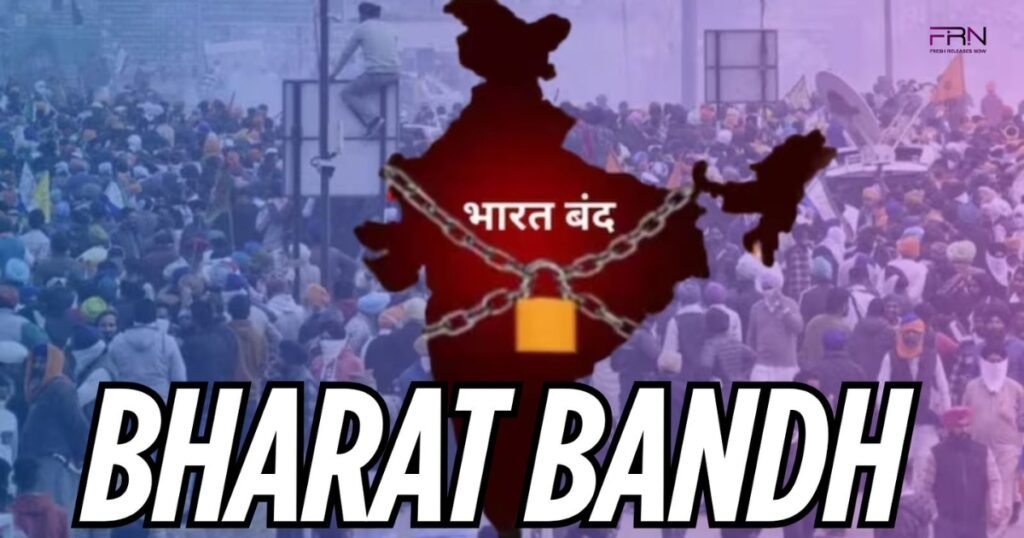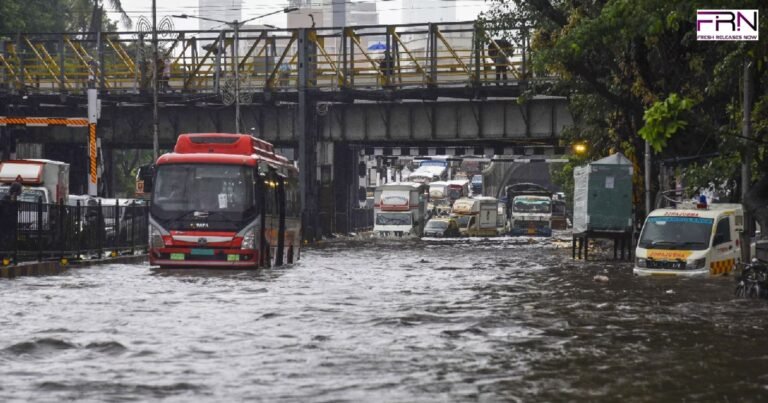
India is gearing up for a massive country-wide shutdown (Bharat Bandh) on July 9, 2025, in which approximately 25 crore (250 million) workers across numerous industries will participate in strike action across the country. The bandh call has originated from a number of farm groups, civil society organizations, and well known trade unions with the intention of protesting against economic policies, labour reforms, privatization, and inflation. This very large scale participation will bring disruption on a significant scale to public services, transportation, and day-to-day life alike.
Why Is the Bharat Bandh Being Called?
The Bharat Bandh has been called in opposition to a number of government policies which the trade unions and workers organizations are claiming to be pro-corporate and anti-people. The main demands are:
- Opposition to the mass-scale privatization of public sector units
- Increase in minimum wages, job security and pension entitlements
- Protest against growing inflation particularly in food, fuel and electricity
- Withdrawal of the Electricity (Amendment) Bill
- Protection of rights of gig workers and contract employees
All India Trade Union Congress (AITUC), Centre of Indian Trade Unions (CITU), Indian National Trade Union Congress (INTUC), and several other federations of trade unions are uniting on one platform to carry out the protest action.
India is gearing up for a massive country-wide shutdown (Bharat Bandh) on
Sectors That Will Be Affected
The mass figure of workers who are to participate in the strike indicates a general effect on several sectors. The worst hit will probably be:
1. Public Transport:
Bus operations in most states, and especially those of state transport corporations, are likely to be suspended. Railway unions have also pledged solidarity, and while they might not go on strike, there could be delays and disruptions.
2. Banking and Insurance:
Public sector bank and insurance company employees can even witness a total shutdown in services for cash transactions, loan servicing, and customer services.
3. Government Offices and Schools:
Some employees’ unions of state and central government departments have also offered support. This could lead to shutdowns or skeletal operations of government offices. A few states might even declare a school holiday for the sake of students’ safety.
4. Health Services:
Although emergency medical care will continue, OPDs, non-critical care, and government hospital administrative services might be delayed or disrupted.
5. Agriculture and Rural Employment:
Unions of farmers and rural workers, such as those involved in MNREGA, have pledged their support, which may impact harvesting, local markets, and government employment schemes.
Who Is Supporting the Bandh?
Besides trade unions, various farmer organizations, such as members of the Samyukt Kisan Morcha (SKM), students, and civil society organizations, have supported the bandh. The common platform also has women’s rights advocacy groups, Dalit groups, and minority rights activists.
Political parties like the Left Front, some regional parties, and opposition fronts have also given moral and logistical support to the movement.
Government Response and Preparations
The government has termed the bandh as “politically motivated” but assured that there would be maintenance of law and order. Officials in the Home Ministry have told state governments to deploy adequate security personnel to prevent violence or disturbance, according to reports.
Those states where there is significant union presence, such as West Bengal, Kerala, Punjab, and Tamil Nadu, may see maximum voting. State governments of a few states will presumably issue advisories, requesting citizens not to make unnecessary movements and remain watchful.
End Note
In all likelihood, the Bharat Bandh on July 9, 2025, was one of the largest coordinated protests in several years, with over 25 crore workers and citizens anticipated to be involved. This bandh wasn’t merely a symbolic strike or action. Rather, it was a powerful signal to policy makers about mounting discontent over economic policies and labour rights. The large scale and effect of the bandh may force policy makers to reconsider controversial reforms and engage effectively with stakeholder consultations.



